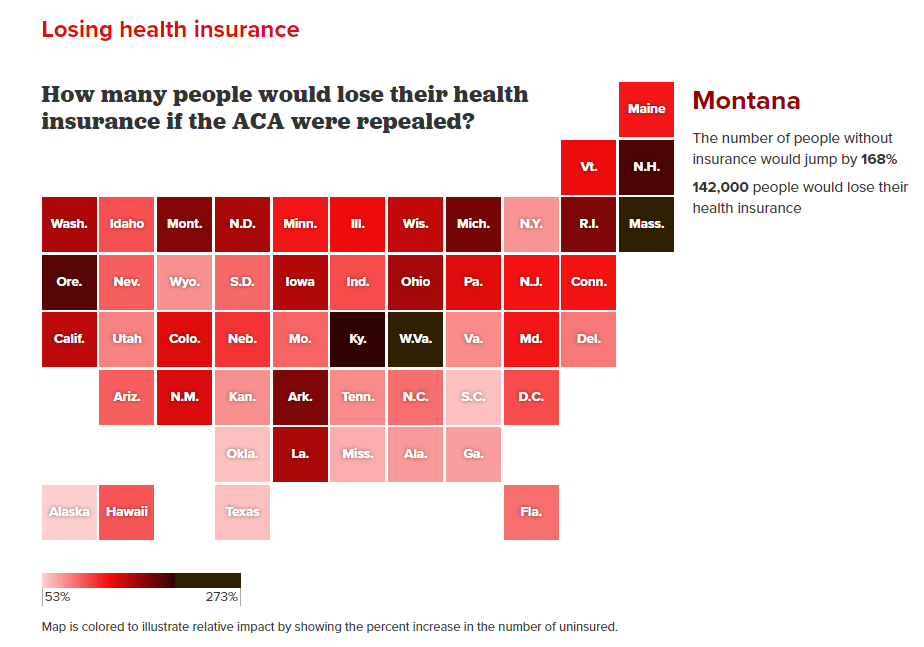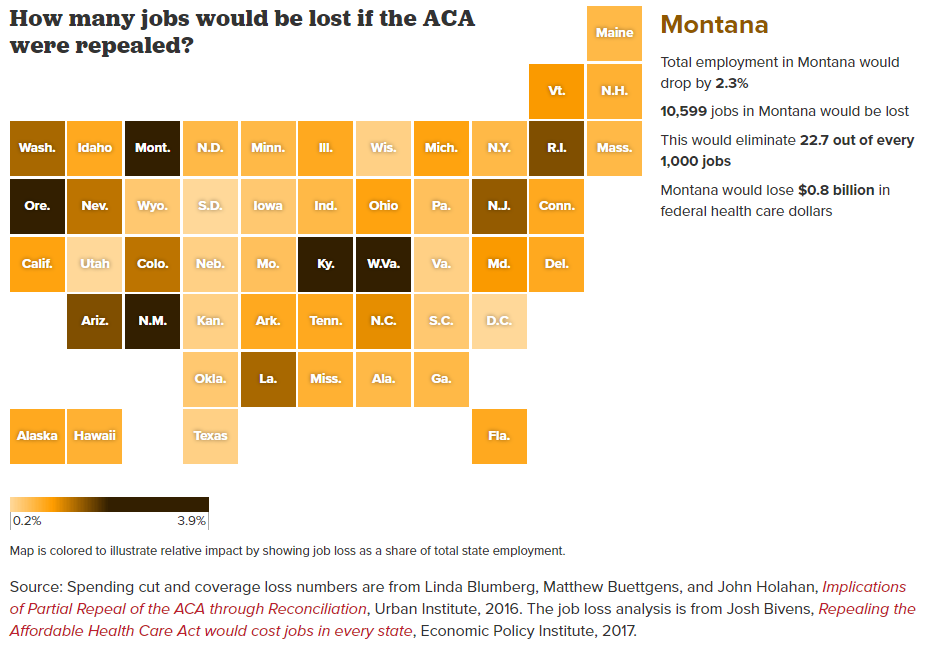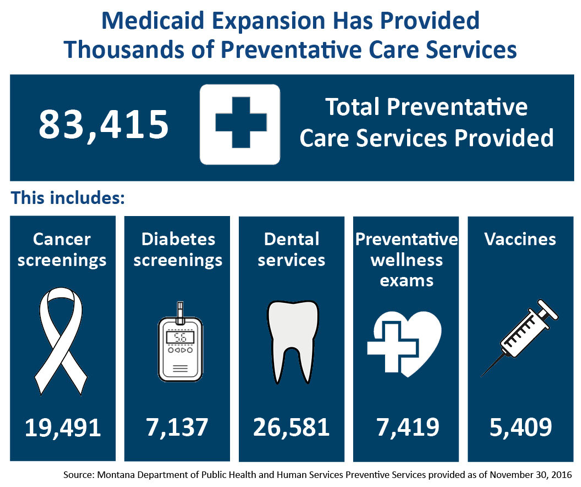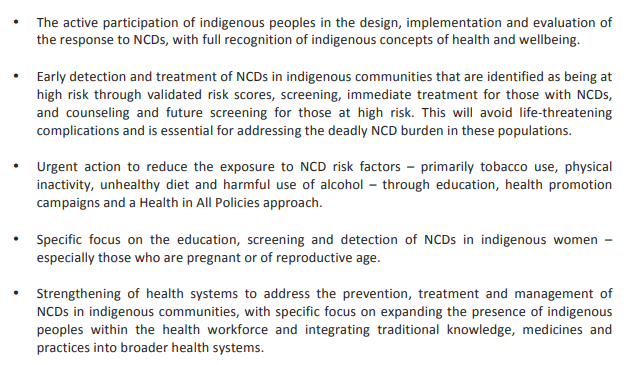The ACA is a Lifeline for Native Americans Who Suffer from NCDs
The Affordable Care Act (“ACA”) is scheduled for argument before the United States Supreme Court in November – just one week after the 2020 General Election. With the current balance of the Court, one outcome might be repealing the law. According to the Economic Policy Institute, 29.8 million people would lose their health insurance if the ACA were repealed. That’s more than double those without health insurance today. Further, 1.2 million jobs would be lost as a result of the repeal. A devastating figure after one of the most significant job losses recorded in US history, due to the COVID-19 pandemic.
The United States is one of the only developed nations without universal health care coverage. And while the ACA is by no means complete or perfect, the impact of a repeal without a sufficient replacement would be catastrophic across a number of scenarios. While the effects of repeal are far-reaching, the impact is non indiscriminate with poor, minority, and rural populations poised as the most vulnerable to lose their health coverage.
In Montana alone, the number of people without insurance would jump by 168%. 22.7 out of every 1,000 jobs would be lost if the law were repealed, striking one of the most devastating blows to state economies across the country.


Within the state of Montana, 7% of the state population identify as Native American. Tribal leaders and public health advocates within Montana’s indigenous population have been vocal on the impacts the Affordable Care Act repeal would have on access to health care in Indian country. In 2012, the highest percentage of uninsured in the United States were Montana resident American Indians and Indigenous Alaskans – 40% of that population did not have health insurance. Things did improve through a combination of the Affordable Care Act and Medicaid expansion. According to a 2017 report on Montana’s Budget, ACA and Medicaid expansion, have supported NCD prevention by granting tribal citizens access to preventative care and educational resources that alleviate diabetes and heart disease. This marginal success is encouraging, but not sufficient. It’s time to double-down, not back away.

Non Communicable Diseases in Indigenous Populations
The indigenous population in the U.S ranges from 2.5 million to 6 million people (IWGIA). In 2016, American Community Survey Data show that 26.2% of Native Americans live in poverty, nearly double the national average.
The NCD Alliance – consisting of a combination of scientific and professional associations, academic and research institutions, private sector, and individuals – provided a detailed analysis of health inequalities across indigenous populations, including excess rates of NCDs such as diabetes, cardiovascular disease, and respiratory disease. In 2011, the United Nations issued a Political Declaration on NCD Prevention also acknowledging the disproportionate impact of NCDs on indigenous populations.
Death rates attributed to a number of NCDs – asthma, acute rheumatic fever, diabetes, and more – are almost always consistently higher among indigenous populations. As just one example, among American Indians and Alaskan Natives living in Washington State close to 25% of low-income indigenous people suffer from asthma, with a death rate two times higher than the general population. Alaskan Natives have twice the mortality rate due to Rheumatic Heart disease than other Alaskans (NCD Alliance).
Multitude of Factors Driving NCDs
As with any intersectional public health matter, the high rates of NCDs among native populations globally and in the US are vast and systemic. Social, economic, environmental, historical, genetic factors are all structural contributors to health inequality and therefore higher rates of NCDs among indigenous people. Indigenous populations in the United States are more likely to use tobacco, have poorer nutrition, suffer from alcohol abuse and addition, and encounter more structural and practical barriers to health access. The NCD Alliance issued several policy proposals on how to address higher rates of NCDs among indigenous peoples:
While these thoughtful policy proposals might provide significant improvement to the issue at hand, they’re entirely dependent on one thing: access. Education, detection, and screening – are all made possible when individuals have health coverage and feel freedom to access their services. Above all – populations need universal access to health care. This is especially true of those who have long-been systemically and structurally sidelined from those institutions designed to protect and to ensure their health and well-being.
Of the importance of the ACA and access to medical care to Montana’s native population, Rep. Barbara Bessette, D-Great Falls and member of the Chippewa Cree Tribe said:
“Now we see more than ever how important it is for people to have access to treatment of any kind, and how important it is to push prevention and to make sure that we can get rid of these health disparities among our vulnerable populations.”
NCDs, COVID, and the Fight Upon Us
NCDs are known killers across developed economies – accounting for the majority of pre-mature mortality. But they’re silent and a slow burn. The loud ferocity of the COVID-19 pandemic – capturing headlines, attention, and medical resources echoes the same discriminate lines of mortality as NCDs in the United States. Indeed 37% of deaths attributed to COVID-19 in Montana were those who identify as Native American. Those who are poor, lack access to preventative and specialized care, and those who suffer from toxic stress are more likely to die from COVID-19. Those are also the same factors that cultivate a propensity to die from NCDs. The COVID tsunami may subside in time, but absent an expansion of, rather than disbanding of, the Affordable Care Act, NCDs will continue to account kill – silently, and discriminately.




Ok, I will try to comment again. Not sure what happened to my last one.
I really appreciated how you focused on how a certain population would be affected if the ACA is repealed. It really let me see it through a different lens. I appreciated the maps as well. There is definitely a range on how each state will be effected should it be repealed. While reading this, I had the thought. Why could each state not implement a version of UHC for just their state residents? I have always viewed UHC as being a whole country or not at all situation but it is clear with other issues such as legalization of marijuana, death penalty, gay marriage etc that states do have the autonomy to make laws and pass tax laws on their own. I wonder if any state would consider doing this and what the greater impact would be? Any thoughts?
Hi Katie, I think the graphs are great and really useful to help the reader view the issue of ACA through a more focused lens. I am keen to learn the answer to Katie’s questions and on the other hand I also wonder if there are any community-led or grassroots efforts that, in line with public health efforts and ACA, have helped reduce the burden of NCDs? Thanks for posting! Evelyn
Katie, this is a very compelling and well-researched post. You highlight such a valuable point – indigenous populations all over the globe are often the most vulnerable and yet overlooked. This has been going on for far too long!
Thanks for your insight,
Ladeisha